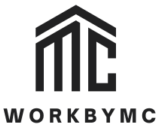Key Takeaways
- In-house recruiting teams offer numerous benefits.
- Strategic approaches can enhance recruitment efficiency.
- Emerging technologies play a pivotal role.
- Integration of brand culture is crucial for success.
Table of Contents
- The Growing Importance of In-House Recruiters
- Key Advantages of an In-House Recruitment Team
- Effective Strategies for Successful Talent Acquisition
- Leveraging Technology in Recruitment
- Aligning Recruitment with Company Culture
- Challenges and Solutions in In-House Recruiting
- Future Trends in In-House Recruitment
In the dynamic world of talent acquisition, in-house recruiters have emerged as key players, steering organizations toward successful and sustainable hiring processes. As businesses strive to perfect their recruitment strategies amidst growing competition for skilled professionals, leveraging an in-house recruiter becomes increasingly appealing. This shift is primarily driven by the need for a personalized and controlled approach to hiring, where companies can tailor the recruitment experience to reflect their unique culture and values.
The advantages of internal recruitment extend significantly beyond just cost-saving measures. For many organizations, the primary incentive lies in coupling recruitment functions with their strategic goals. Handling internal recruitment allows companies to align more tightly with their culture and fine-tune the hiring process to select better candidates who satisfy the role-specific requirements and assimilate well into the corporate environment. According to recent studies by industry leaders, companies implementing in-house recruitment systems often experience increased employee satisfaction and engagement, leading to a notable decrease in turnover rates. This benefit is invaluable in preserving business operations’ consistency and core competencies.
The Growing Importance of In-House Recruiters
Organizations are turning to in-house recruitment to maintain a competitive edge in today’s business landscape, where the talent pool is diverse and vast. This trend is bolstered by the increasing complexity of the hiring process, where a one-size-fits-all approach no longer suffices. By developing an internal team dedicated solely to recruitment, companies can ensure that the individuals they bring on board are technically qualified and culturally compatible. The ability to nurture these nuances differentiates in-house recruitment efforts from outsourced models, offering a strategic advantage.
Key Advantages of an In-House Recruitment Team
The alignment between in-house recruitment teams and company strategic objectives must be balanced. With intimate knowledge of organizational culture and values, these teams can effectively communicate the company’s vision to potential candidates. It strengthened communication, which results in a smoother recruitment process, where misunderstandings between the hiring team and candidates are minimized. Moreover, by having complete control over the hiring process, organizations can tailor recruitment strategies to attract and retain top-tier talent, effectively reducing hiring costs associated with external agencies.
Effective Strategies for Successful Talent Acquisition
Organizations must employ innovative and forward-thinking recruitment strategies to thrive in competitive hiring. Building robust talent pools is crucial, allowing recruiters to quickly tap into a reservoir of potential candidates when positions arise. Coupled with this is the importance of a compelling employer brand; by projecting a strong, attractive image, companies can draw in high-caliber candidates who resonate with their core values. Leveraging data analytics can also refine these processes, enabling teams to make informed, strategic decisions that enhance recruitment outcomes.
Leveraging Technology in Recruitment
The impact of technology on recruitment is profound and transformative. Adopting artificial intelligence (AI) and machine learning streamlines the screening process, drastically reducing the time recruiters spend sifting through resumes. These technologies improve efficiency and enhance the quality of candidate filtering, as AI systems are adept at identifying key skills and experience levels far quicker than a human recruiter could. Additionally, recruitment software automates repetitive tasks, allowing recruiters to dedicate more time to personal interactions that can significantly sway a candidate’s decision to join a firm. Social media continues to rise as a pivotal platform, enabling recruiters to gain unparalleled access to a vast audience and engage passive candidates who may not be actively looking but could be a perfect match for the organizational culture.
Aligning Recruitment with Company Culture
Emphasizing company culture within recruitment efforts is advantageous and essential for achieving a harmonious and high-performing workforce. Workers who resonate with their organization’s culture tend to be more involved and show increased tenure in their positions, creating a beneficial impact across the company. By weaving cultural assessment into every step of the recruitment process, from job descriptions to interview questions, organizations can successfully identify candidates whose values mirror the company’s. This cultural alignment fosters a sense of belonging, drives motivation, and contributes to a sustainable competitive advantage in the marketplace. Companies that master this approach, as demonstrated by many success stories across various industries, consistently report less turnover and improved employee morale.
Challenges and Solutions in In-House Recruiting
Despite the advantages, in-house recruitment teams face resource constraints and intense competition for skilled professionals. However, innovative solutions are available to mitigate these hurdles. Utilizing partnerships for strategic talent sharing and continuously refining recruitment strategies can help overcome these challenges. Insights from Business News Daily suggest that staying ahead of trends and employing creative solutions can significantly bolster recruitment efforts, ensuring access to the best available talent.
Future Trends in In-House Recruitment
Looking forward, the landscape of in-house recruitment is poised for change, with several compelling trends on the horizon. The increased reliance on digital platforms and technologies is a trend that will continue to redefine recruitment processes. As the business world becomes more diverse, there will be a greater emphasis on inclusivity within hiring practices, ensuring companies appeal to a broader talent spectrum. As organizations brace for these transformative changes, those that embrace and integrate these shifts into their recruitment strategies will emerge as leaders in the race for talent.

